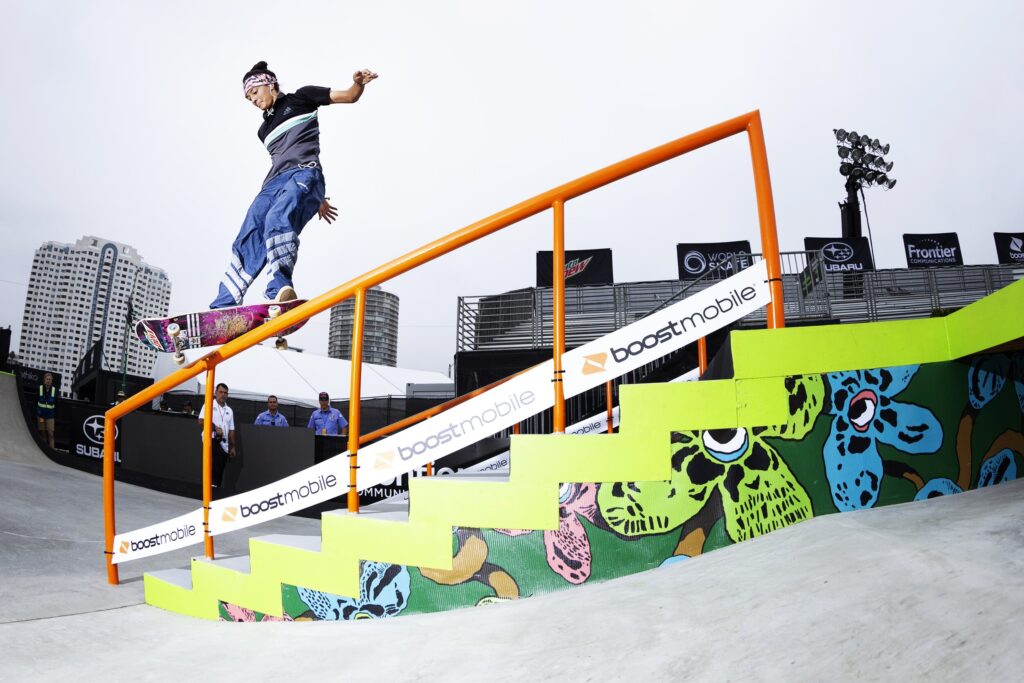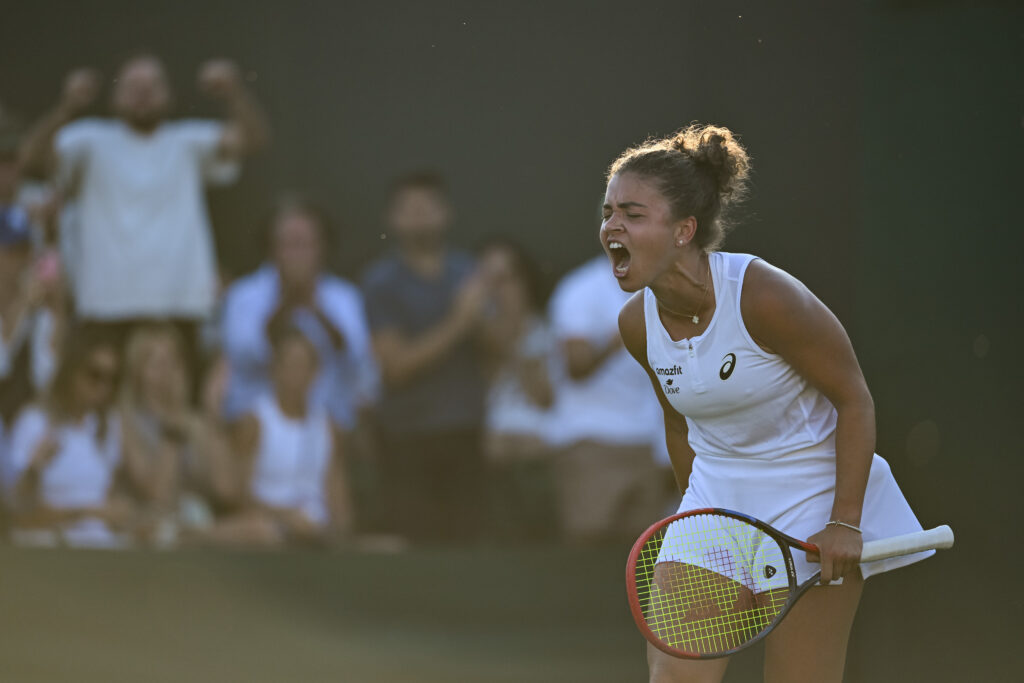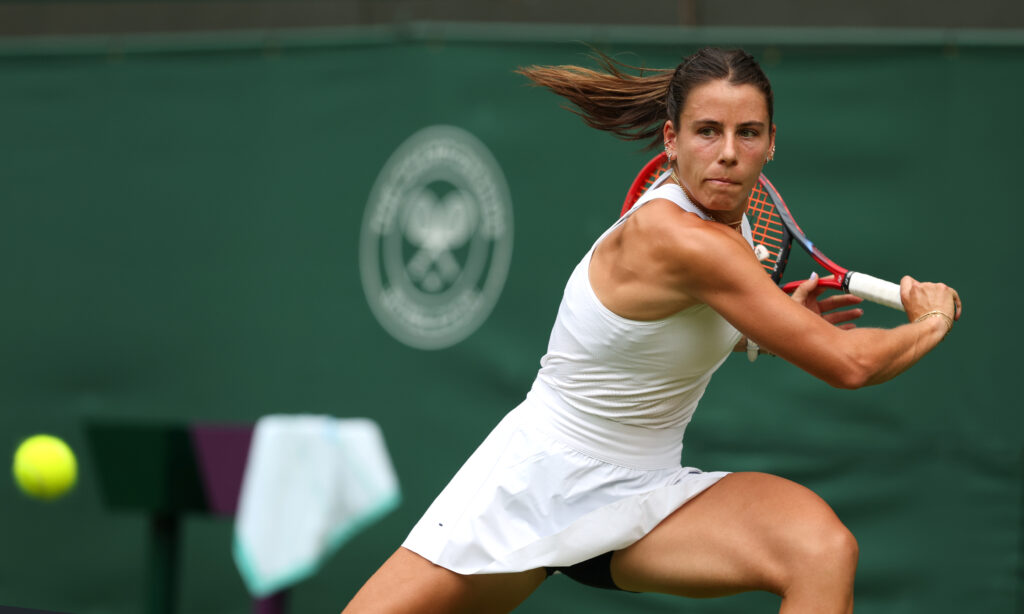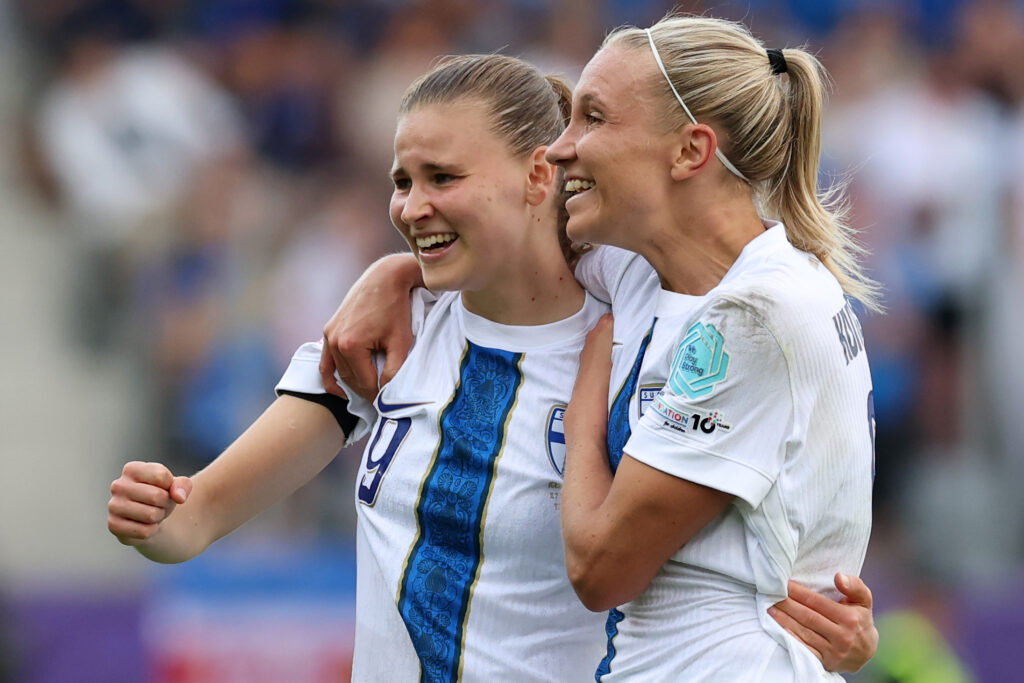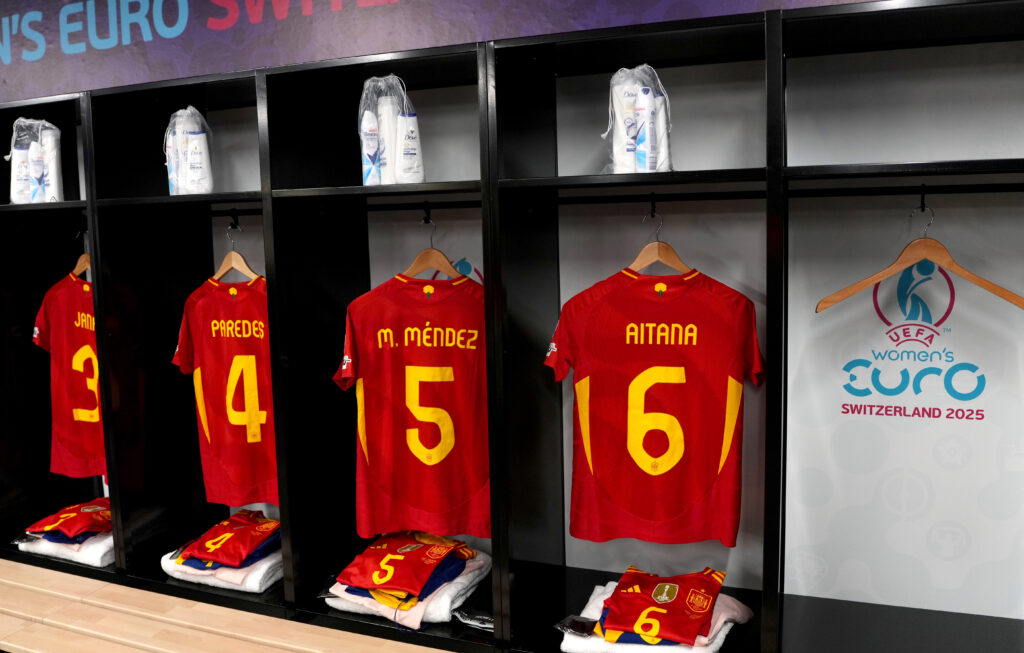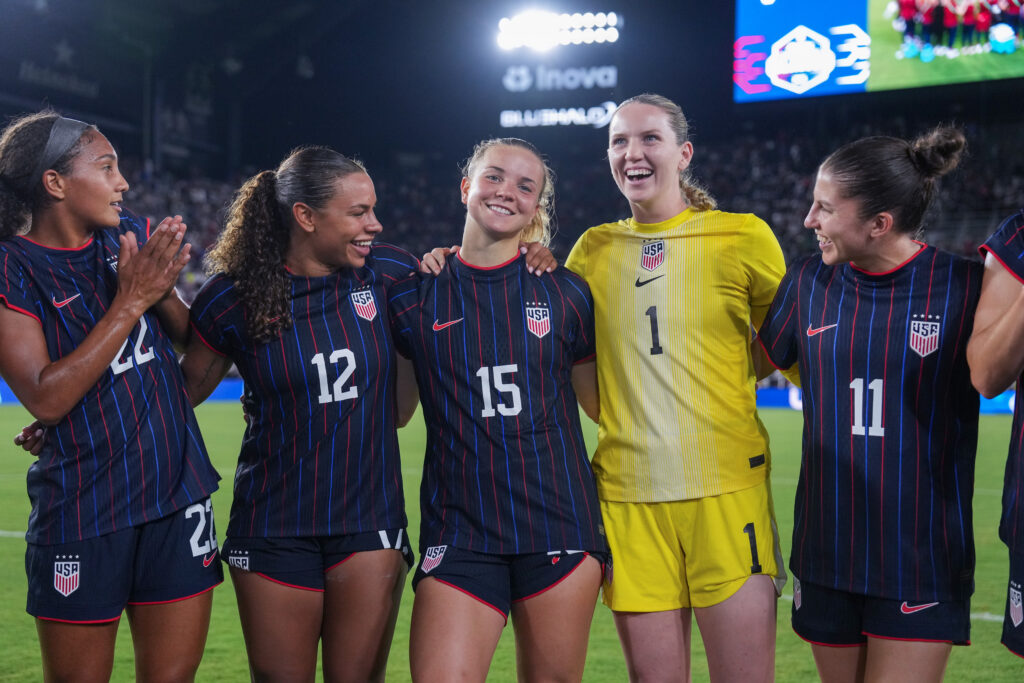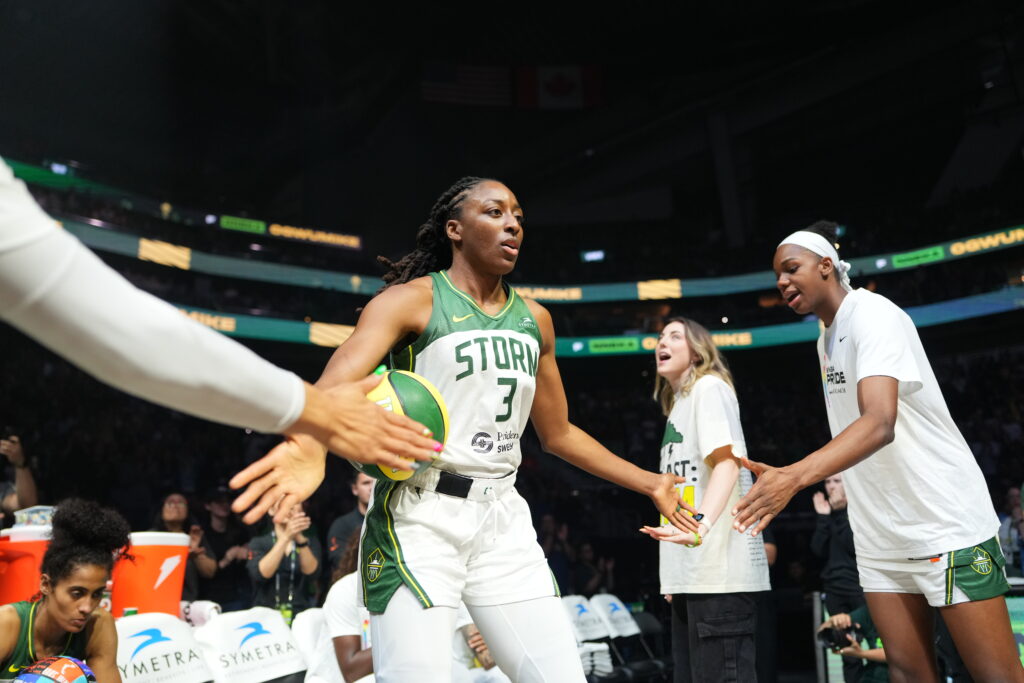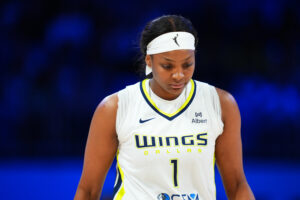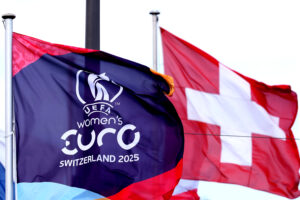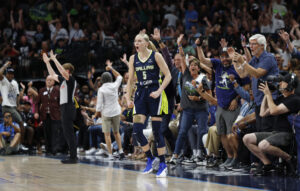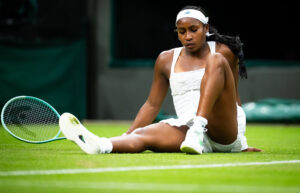Mariah Duran is an American skateboarder who will be competing to represent the USA next summer when skateboarding makes its Olympic debut. A two-time X Games gold medalist, Duran spoke with Just Women’s Sports about her current partnership with sports technology company Orreco, which is helping athletes better understand the effects of their period on their athletic performance.
(To read an overview of the partnership, click here.)
How did you first hear about the Wasserman and Orreco partnership, and what was your reaction?
My agent actually hit me up about it and briefly told me what it was about, how they basically study the female body in athletes and want to educate their partners on how their systems work. I was really interested because it’s something that we don’t really dive into very often in the skating world or for female athletes in general. We’re always compared to guys, especially in skating. It was really cool to just be talking to somebody who’s comparing me to other females and going off of that evidence to try to help me have the best performance in my sport. That was really cool and eye opening for me. And it kind of just made me more aware of everything.
How knowledgeable were you already about the science regarding how the menstrual cycle affects athletic performance?
Honestly, I only knew about as much as I’d learned in school. After that, it was just me experimenting to see what works for my life and my training. I never really knew why it worked or why it didn’t work. More so, I didn’t really have a full understanding that we have completely different systems than men which affect our training and recovery. I was always under the impression that it was for one week of the month, and during that week, you’re just not going to be at your A game.
As an athlete, you have so many other barriers to get over, but as far as understanding the female body, what really stood out to me was that there’s two different systems, and one is not broken. We’re not weaker than a male. We’re just two different things. And I’ve used this analogy before, but it’s like we’re two different cars. One’s an automatic car and the other one’s a manual car. We have to shift into different gears to get where we’re going, but we’re still going to the same place.
That’s a great analogy, I never thought of it in that way either. Yulin [Mariah’s agent] had mentioned that you discovered a correlation between one of the biggest injuries you had in your career last year during a contest and just being unaware of your cycle and how that affects performance. Can you talk about that episode, and how things could have gone differently?
Totally! So last year I had a stress fracture in my tailbone. It was in a contest and it was one of my worst injuries because it was kind of just a freak accident, but it was due to a lot of fatigue and just a hard week of contests. Those things just happen, but it was also something where, had I known how my body reacts throughout not only just one week of the month, but through the entire month, I probably could have been more prepared and more aware of my body, which could have prevented the injury.
Before I started working with Orreco, I skated with my brothers, and I just had this mentality to push until you can’t push anymore. Mentally, that’s the thing that has gotten me as far as I have. But now understanding the physical being of a woman, I think I can take some smaller steps that will help myself avoid fatigue.
And if you are menstruating then you know what to do for your body, you know what to feed your body so that it can keep going at the pace you want it to go. And I think that for me, it was kind of just a lack of education, but I also just never really knew that there was even something to be learned about this. It was kind of always something that I thought, Oh man, maybe it’s just me. I don’t see any of the other girls slamming hard, you know what I mean? And it’s not spoken about much, so it’s really cool to just learn and teach other people by passing on the word.
You’re actively taking the chance to educate some of your female friends and teammates on the subject, but what do you think needs to happen to bring this conversation into the mainstream?
I’ve always kind of believed in just leading by example, because it’s kind of hard to force education upon people who don’t really understand it or aren’t curious. But if I can somehow incorporate this in my skateboarding and people can see the benefits, they’ll be curious and they’ll ask questions about how I’ve gotten where I am.
Leading as a role model, and just bringing awareness—because it’s something that’s not really spoken about, especially as a female. I don’t really discuss how I feel except with my brothers, because they’re my brothers. I’ll tell them if I’m menstruating or whatever, but as far as everybody that I’m competing with or whatever, it’s a harder or more uncomfortable conversation for others to hear that or whatever. So I would like to bring a little bit more awareness, even if it’s small, and leading by example is one way to do that.
In addition to injury prevention like you mentioned, how else has Orreco changed or impacted your training specifically?
It honestly just made me more aware in my training of what I’m putting my body through. Because skateboarding is such a hard thing to regulate, I would say. It’s not like any other sport. In basketball, you could have training in the morning and practice in the afternoon. But with skateboarding, it’s very sporadic. There isn’t a set training schedule. You pull up to a skatepark and you yourself are accountable for how much you want to push yourself. For me, I’m my own coach and my own player. I have to hold myself accountable. And working with Orreco has helped me adapt to certain situations and understand that I’m not always going to be able to push myself the same way every single day of the month. I’ve definitely underestimated rest the past two years, and now I’m taking it into consideration.
Orreco reminds me to get more fuel during the day, and get an extra two hours of sleep during the week, and put my phone down two hours before bed and turn off the TV. And I can feel the difference in doing these little things. And understanding why it works, it’s easier to follow through. And for them to be down to be on this journey with me is awesome. It’s perfect because it doesn’t really interfere with anything. It’s more of just understanding this is my lifestyle and okay, this is how you should be fueling, resting. And it doesn’t interfere with the creativity of my craft. I still have freedom to try to train when I want, to go skate when I want, I just have to do certain extra steps to just help my body recover, be ready. So that’s really nice.
So separate from Orreco, I wanted to chat with you about what the rest of the year looks like. I know you’re working towards the 2021 Olympics, which is super exciting because this is the first year that skateboarding is in the games. How have you been preparing?
Honestly, having the Olympics postponed was a blessing in disguise for me personally. The past few years have been an insane amount of traveling, insane amount of contests and also just other projects aside from getting ready for the Olympics. I never really had the time to take the time to understand where I’m at in my level of skateboarding and also what I need to do to help my body prepare for the Olympics. It’s weird to say, but having this whole pause made me just realize that I literally have gotten into skateboarding before the Olympics was even an option. So it’s kind of nice to know that the Olympics isn’t everything to me, but it is definitely that matters. And I want to prepare for that moment, but I also want to enjoy the journey. It’s weird to say, but just being present is the most important thing you could do for yourself. Each day counts.
It’s kind of one of those things where it’s like, I don’t want to put so much pressure on trying to predict how the future is going to be, because I really don’t know. And this year was an example of that. It felt like the world shut down overnight. I just have to control what I can control. Lately I’ve just been creating training routines with some of my trainers, through Zoom of course. It’s definitely nice because it’s just very simple and very effective for me.
So I’ve just had a lot of time to just work on myself physically and just kind of just be present. I don’t know what the future holds. I definitely know that I’m working towards the Olympics, but I also know that I’m just working every day. So I think that that’s like the main thing that I’ve just been telling myself is to stay present.
